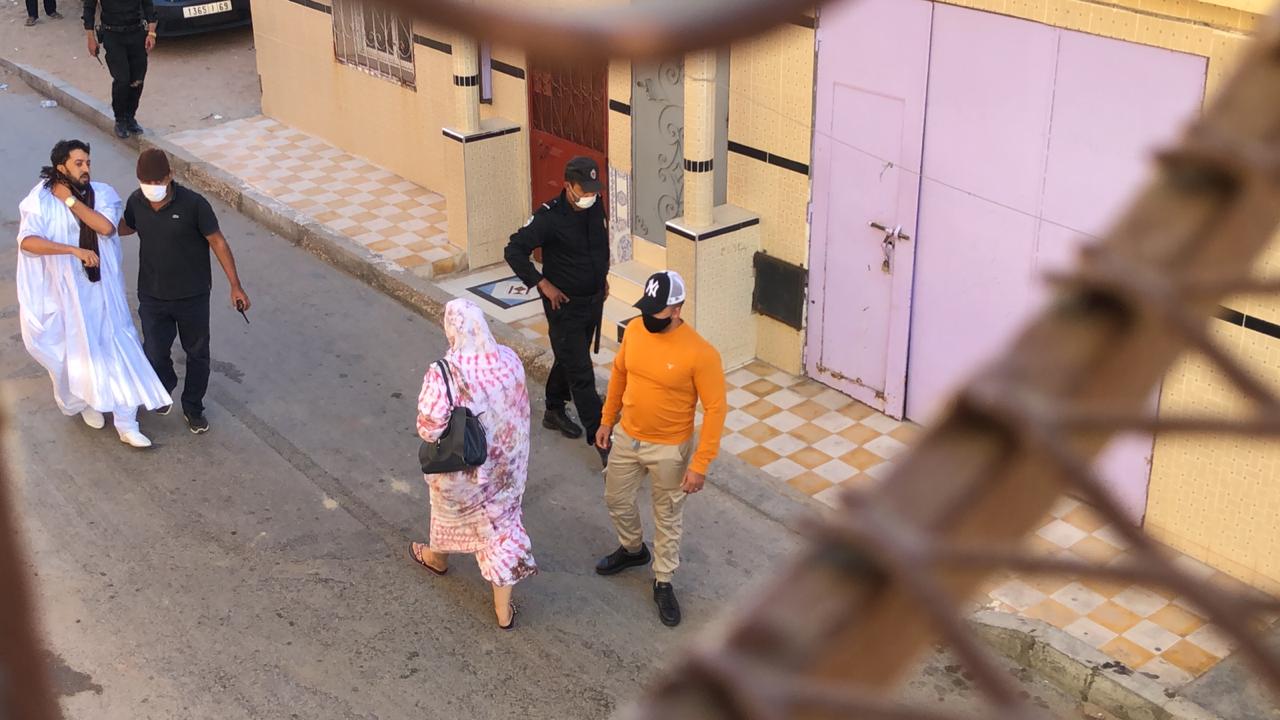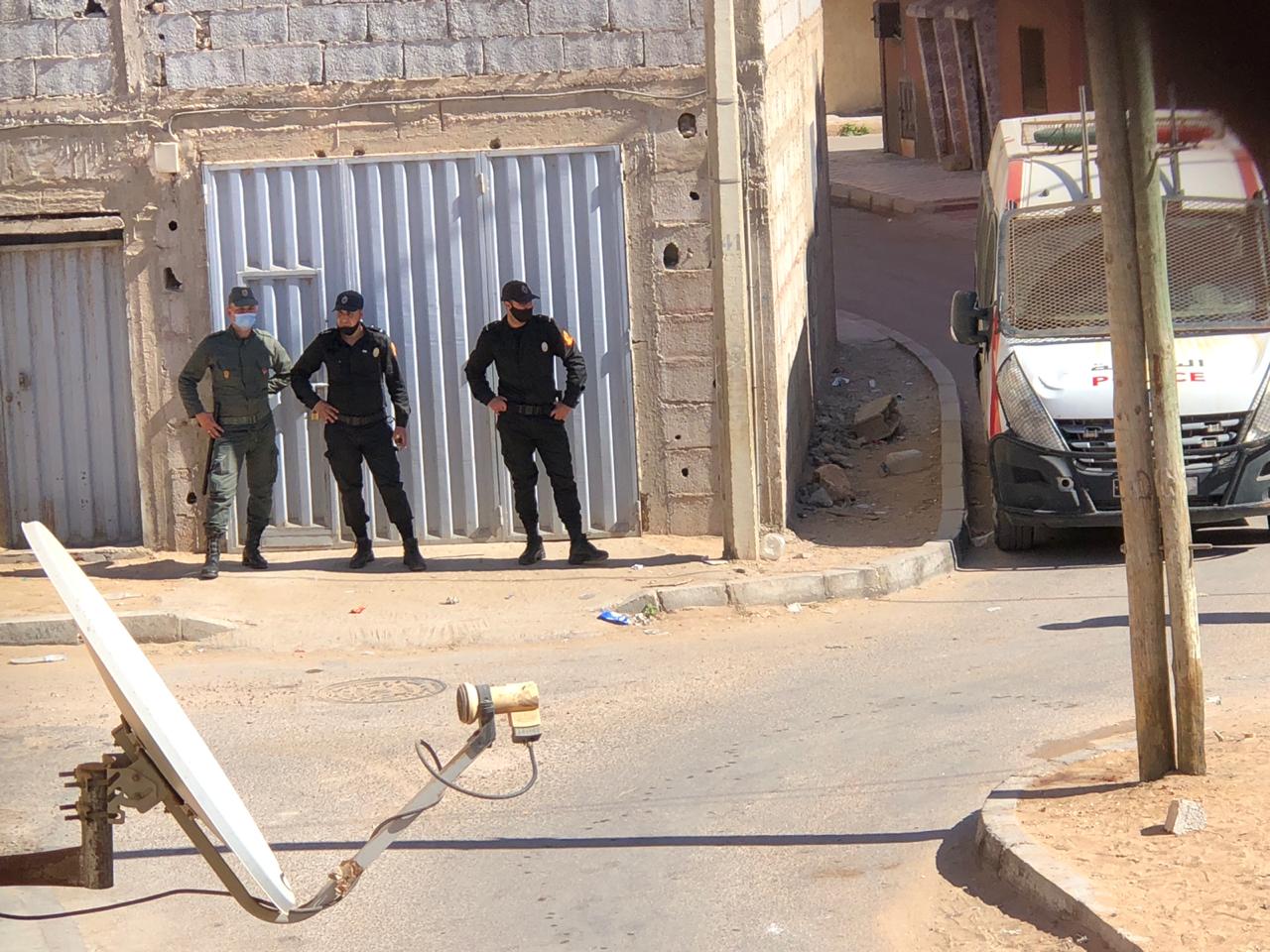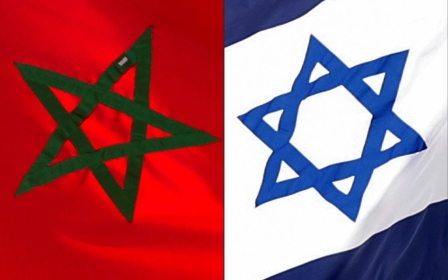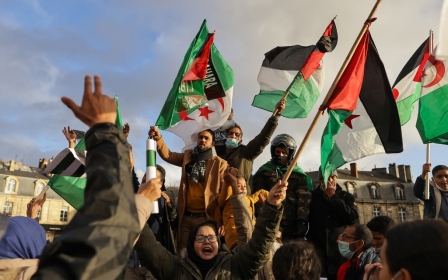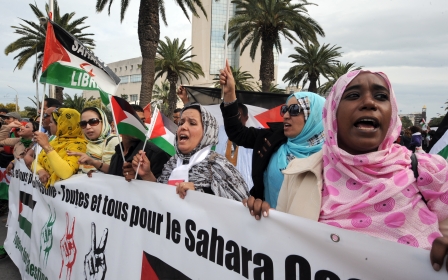The Western Sahara wedding swept up in Morocco's crackdown on press freedom
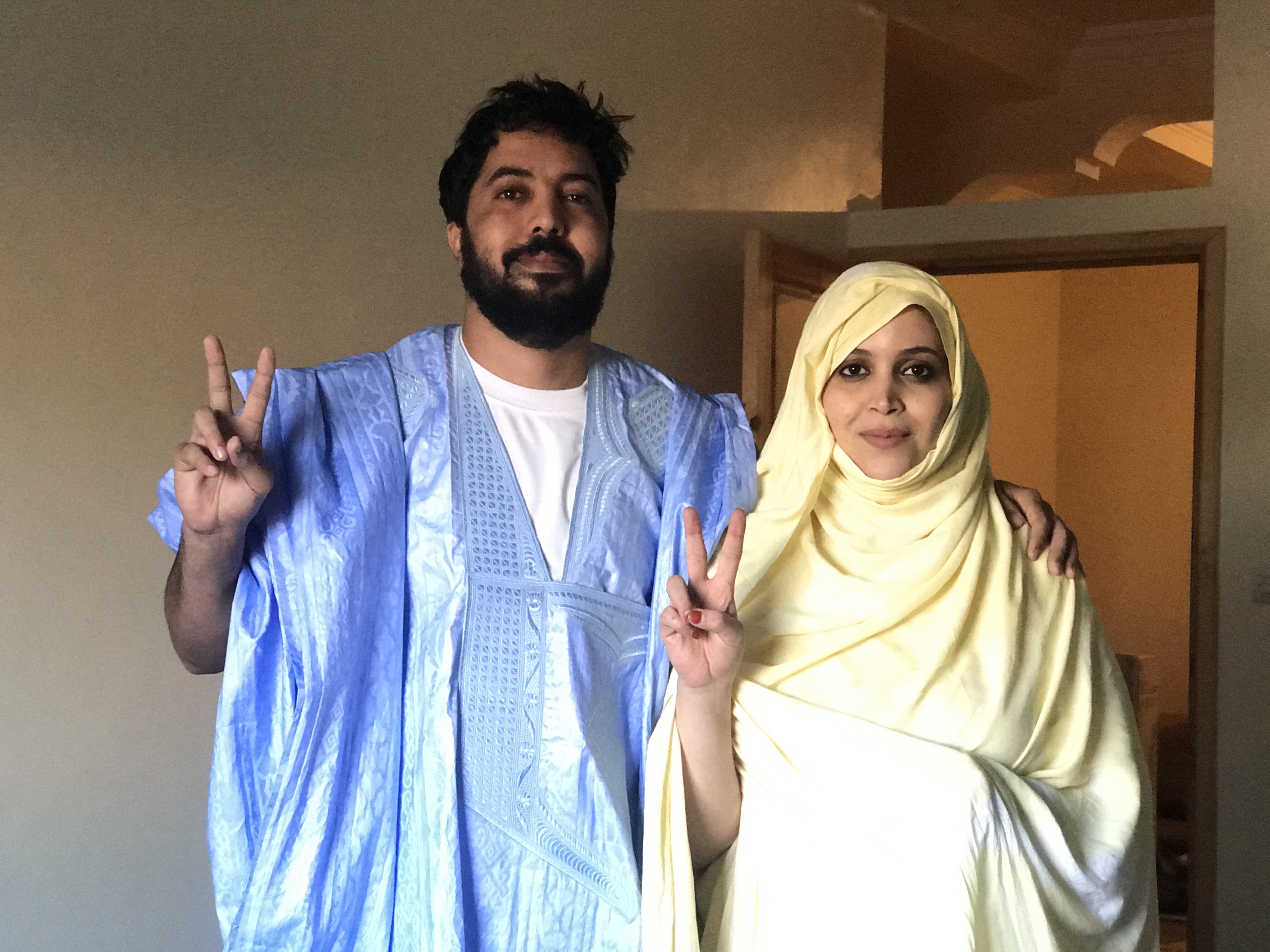
Ahmed Ettanji and his family were dressed in their finest attire and putting the finishing touches to wedding preparations when they received some unexpected and unwanted visitors.
Police vehicles and Moroccan forces surrounded his home in the Western Sahara city of Laayoune, choking the surrounding streets and placing his house under siege.
It was not the celebration of nomadic traditions or the union of two journalists that Ettanji, 32, and his bride Nazha al-Khalidi had in mind.
"There were dozens of police vehicles and personnel in civil and military clothes outside our house. They had us under house arrest for 48 hours," Ettanji told Middle East Eye.
Ettanji, who leads Equipe Media, a group of journalists and activists who document crackdowns at pro-Western Sahara independence rallies, was dressed in a traditional white daraa when the raid took place on 21 November.
New MEE newsletter: Jerusalem Dispatch
Sign up to get the latest insights and analysis on Israel-Palestine, alongside Turkey Unpacked and other MEE newsletters
He, his parents, brothers and sister were about to embark on a tradition practised on the first day of Sahrawi weddings, when the groom seeks his bride.
But a few blocks away, Khalidi was having her own problems. The 28-year-old's family home was also besieged by security forces for two days.
Ettanji and Khalidi say they were given no reason by Moroccan authorities for the 48-hour lockdown placed on both their homes on their wedding day.
MEE requested comment from authorities in Western Sahara several times but was ignored.
"The authorities insisted on foiling the preparations for my wedding," Khalidi said.
Crackdown on journalists
Khalidi and Ettanji grew to know each other as they documented the restrictions and crackdowns against Sahrawi activists.
Morocco, which since 1975 has controlled most of Western Sahara, including Laayoune, has long sought to quash the Sahrawi independence movement that has roiled the territory for decades.
Until a 1991 ceasefire, Moroccan forces battled with the pro-independence Polisario Front. But for the past 30 years, Polisario and other Sahrawi activists have pushed for an independence referendum instead.
Such calls have been routinely suffocated by Morocco's forces in Western Sahara, and Sahrawis say repression has got all the worse in recent weeks.
Moroccan forces launched an operation on 13 November to remove a pro-independence protest on a road from Guerguerat, in the far south of Western Sahara, leading to Mauritania, prompting the Polisario to declare the 1991 truce over.
A month later, US President Donald Trump issued the bombshell statement that Washington was recognising Moroccan sovereignty in Western Sahara as part of an agreement that saw Rabat normalise relations with Israel.
Throughout that period, Moroccan authorities have cracked down on journalists and activists in the country, to the condemnation of human rights groups.
The situation continues to worry Ettanji, who has seen colleagues at Equipe Media be jailed, one even for life.
"Abdallahi Lakhfawni, who is a member of our team, was sentenced to life in prison for just carrying a camera and documenting the human rights violations by the Moroccan regime," Ettanji said.
That 2010 case, which was denounced by Reporters Without Borders, remains a terrifying precedent for other members of Equipe Media.
Tumultuous weeks
All in all, it has been a tumultuous and dangerous few weeks for Sahrawi activists, and Khalidi says she predicted the wedding of two high-profile journalists would attract unwanted attention.
"We actually expected this to happen. I managed to go to another house, but they raided the people there too," she said.
"I saw this was too much and asked them if they had a judicial order to arrest someone or even arrest me if they want. I told them they were scaring the kids and frightening everybody while we were supposed to enjoy this day. They simply pushed me without any [other] response."
'I told them they were scaring the kids and frightening everybody while we were supposed to enjoy this day. They simply pushed me without any response'
- Nazha Khalidi, journalist
Ettanji and Khalidi were not the only people caught up in the wedding crackdown.
Malainin Cheikh, a wedding singer known for taking part in the 2010 demonstrations at the Gdeim Izik protest camp, was given an unusual order the day before the event.
"I was at my parents' house when police vehicles came asking about me. They threatened me with death if I attened Ahmed and Nazha's wedding ceremony," Cheikh told MEE.
Meanwhile, other journalists and activists on Morocco's radar have been targeted.
Sultana Khaya, a Sahrawi activist who lost her eye while demanding independence at a student demonstration in Marrakech in 2007, was intercepted as she returned to the territory from the Canary Islands.
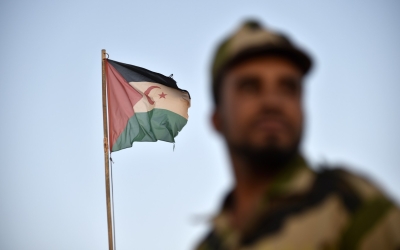
"I was stopped at a checkpoint at the entrance of Boujdour, where I was stripped of my clothes and insulted because they found a mask with the Sahrawi independence flag in my purse," she said.
"They came to my house, knocked down my door and hit my mum on the head to leave her laid on the ground with her head bleeding."
Khaya's mother, Ambairika Anwaijam, who is 84 and suffers from diabetes, was taken to hospital in an ambulance two hours later.
"When they attended my mum, they just wrapped her head up in a bandage. She has not been scanned yet" to asses the status of her head injury, Khaya said.
Constant surveillance
Surveillance and arrest have become facts of life for Sahrawi journalists and activists, particularly ahead of Morocco's deal with Israel and the United States.
"We are being followed by state agents with civilian clothes on a daily basis," Ettanji said.
Morocco has been found by Amnesty International to be using Israeli malware to spy on journalists and human rights activists, and Ettanji believes such methods are used in Western Sahara, too.
'All this hostility and intervention targeting us specifically is a result of our work as journalists documenting human right violations in Western Sahara'
- Ahmed Ettanji, journalist
"There is a massive powerful system being deployed by the Moroccan regime to spy on us. This is why when we document we try to hide as much as possible," he said.
"All this hostility and intervention targeting us specifically is a result of our work as journalists documenting human rights violations in Western Sahara."
Crashing in on weddings is just the latest tactic, it seems. But Ettanji and Khalidi were eventually able to get married, though not on the day they'd been looking forward to.
"Our plan is to continue working to break the media blockade, and we will be even stronger together," Ettanji said.
This article is available in French on Middle East Eye French edition.
Middle East Eye delivers independent and unrivalled coverage and analysis of the Middle East, North Africa and beyond. To learn more about republishing this content and the associated fees, please fill out this form. More about MEE can be found here.


